What is Lithium?
Lithium (lithium carbonate) is an antimanic agent, a mood stabilizer prescribed to treat mental health conditions, including depression treatment, bipolar disorder treatment, and schizophrenia treatment. Lithium works to treat affective disorders by reducing abnormal activity in the brain. According to the National Institute of Health (NIH) [1], lithium is available as a capsule, immediate-release and extended-release tablets, and liquid solution consumed orally by mouth. Brand names for lithium include Lithobid and Eskalith.
How does lithium work? Lithium works by changing the release of chemicals in the brain. For some people, lithium can help decrease abnormal activity in the brain, manic episodes, and suicidal feelings. If you have a mental illness, your doctor will decide if medication is the right treatment for you. Lithium is just one option.
What is Lithium Used For?
For the treatment of the bipolar disorder, also formerly known as manic depression, lithium can be used independently or in combination with other medications such as the following:
- Ativan, Valium, or Xanax – Benzodiazepines prescribed for anxiety and panic attacks
- Seroquel, Haldol, or Risperdal – Antipsychotics prescribed for bipolar disorder and schizophrenia
- Paxil, Zoloft, or Lexapro – SSRI antidepressants prescribed for depression and anxiety
Lithium is typically prescribed as maintenance therapy between manic episodes in people with bipolar disorder. To effectively prevent manic and depressive recurrences of bipolar disorder, lithium should be administered to maintain a blood concentration of 0.60–1.20 mEq/L
Skip To:
- What is Lithium?
- What is Lithium Used For?
- Can You Drink Alcohol While Taking Lithium?
- What Happens If You Drink Alcohol While Taking Lithium?
- Lithium and Alcohol Use
- Lithium And Alcohol Reaction
- Effects of Alcohol on Lithium
- Lithium and Alcohol Dangers
- Low-Dose Lithium and Alcohol
- Lithium and Alcohol Side Effects
- Lithium and Alcohol Hangover
- Lithium Alcohol Cravings
- Can Lithium and Alcohol Kill You?
- Alcohol and Lithium Toxicity
- Lithium for Bipolar and Alcohol
- Co-Occurring Disorders (Bipolar and Alcoholism)
- Alcoholism Treatment
Learn More:
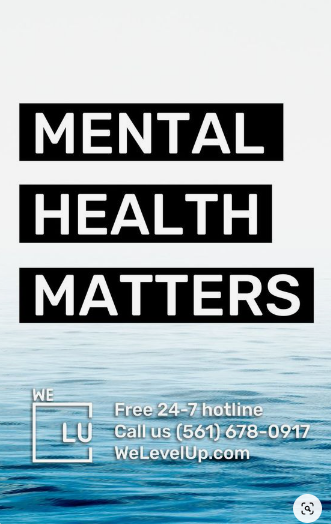
Can You Drink Alcohol While Taking Lithium?
Drinking alcohol affects your brain’s functioning and mood, which can worsen bipolar disorder. Mixing lithium and alcohol intensifies the medication’s sedating side effects and may lessen the Lithium’s benefits. It can be dangerous to your physical and mental health if you drink alcohol while on Lithium because alcohol can increase symptoms that might lead to lithium toxicity. In general, combining lithium and alcohol may not be advised, and you should always speak to your doctor about possible risks and side effects.
What Happens If You Drink Alcohol While Taking Lithium?
Individuals taking lithium should avoid drinking alcohol. Not only can alcohol worsen bipolar disorder symptoms, but it can also intensify side effects caused by lithium, including drowsiness and dizziness. Bipolar disorder is a mental health condition where people experience drastic mood swings that cycle between periods of low moods (depression) to episodes of high moods (mania). This condition is often treated with lithium, the first-choice medication for bipolar disorder. While the way this medication works is not fully understood, researchers believe lithium may boost levels of certain chemicals, such as serotonin, in the brain. Taking lithium while drinking may make the medication less effective, leading to more mood swings.

Get Your Life Back
Find Hope & Recovery. Get Safe Comfortable Detox, Addiction Rehab & Mental Health Dual Diagnosis High-Quality Care at the We Level Up Treatment Centers Network.
Hotline (877) 378-4154Lithium and Alcohol Use
Lithium carbonate is used in the treatment of psychiatric disorders. The clinical response to lithium depends on an adequate serum lithium level, and the absorption and elimination of lithium are two processes that are among the primary determinants of serum levels. Factors that alter these processes may affect lithium’s safe, therapeutic use. One such factor might be alcohol because it is a common, socially used drug frequently abused by patients receiving lithium.
Alcohol has effects on intestinal motility
and transit times that might affect lithium absorption. Alcohol also has an acute diuretic effect through the inhibition of vasopressin. Because renal excretion accounts for almost all lithium clearance, any change in this mechanism may alter lithium serum levels. Both acute and chronic alcohol use can increase brain lithium levels, decrease lithium excretion, and induce greater lithium toxicity in rats and mice [3].
Lithium And Alcohol Reaction
Alcohol can increase the nervous system side effects of lithium, such as dizziness, drowsiness, and difficulty concentrating. Some people may also experience impairment in thinking and judgment. It would be best if you avoided or limited the use of alcohol while being treated with lithium. Do not use more than the recommended dose of lithium, and avoid activities requiring mental alertness, such as driving or operating hazardous machinery, until you know how the medication affects you. Talk to your doctor or pharmacist if you have any questions or concerns.
Lithium is not addictive except that anything can become psychologically addictive. Lithium does not cause physical dependency in people taking it, as with alcohol or opiates. Even though lithium is not a naturally addictive substance, it can still be used improperly or mixed with addictive substances, which can cause dangerous interactions, and in some cases, death.
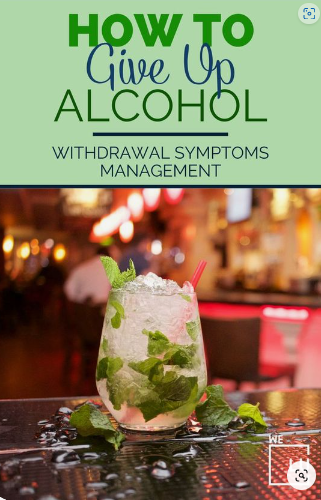
First-class Facilities & Amenities
World-class High-Quality Addiction & Mental Health Rehabilitation Treatment
Rehab Centers TourRenowned Addiction Centers. Serene Private Facilities. Inpatient rehab programs vary.
Addiction Helpline (877) 378-4154Proven recovery success experience, backed by a Team w/ History of:
15+
Years of Unified Experience
100s
5-Star Reviews Across Our Centers
10K
Recovery Success Stories Across Our Network
- Low Patient to Therapist Ratio
- Onsite Medical Detox Center
- Comprehensive Dual-Diagnosis Treatment
- Complimentary Family & Alumni Programs
- Coaching, Recovery & Personal Development Events
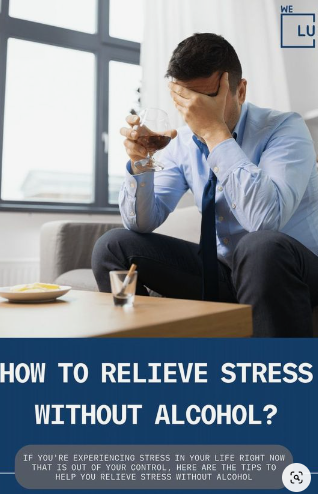
Effects of Alcohol on Lithium
There are other considerations with mixing lithium and alcohol. One of these is the fact that alcohol is dehydrating. Because alcohol dehydrates the body, it can lead the amount of lithium in the blood to rise and become toxic.
Individuals on lithium are advised to maintain a balanced diet, which can be interrupted by alcohol. Because of how heavily lithium affects sodium levels in the blood, it’s crucial to be vigilant with salt consumption.
Lithium use is also linked with an increased risk of hypothyroidism. Drinking alcohol also harms thyroid levels. Other substances, including marijuana and cocaine, can cause dangerous interactions with lithium. Individuals with substance use disorders should not be prescribed lithium.
Lithium and Alcohol Dangers
Alcohol use disorder complicates the management of the bipolar disorder and other mood disorders. Drinking alcohol impairs judgment and makes the user more impulsive and prone to injury or risky behavior.
Alcohol and lithium also increase the risk of suicide. The risk of suicide is nearly doubled in people with bipolar disorder who abuse alcohol compared with patients who don’t.
Low-Dose Lithium and Alcohol
A recent study found that daily doses of lithium, leading to plasma levels ranging from 0.4 to 0.8 mEq/liter, delay disease progression in human patients affected by Amyotrophic Lateral Sclerosis (ALS). There is no amount of alcohol that is entirely safe to drink while taking lithium. Since consuming alcohol can worsen symptoms of bipolar disorder, make sure to discuss questions about this interaction with your healthcare provider before drinking any amount of alcohol.
Desirable serum lithium concentrations are 0.6 to 1.2 mEq/L, which can usually be achieved with 900-1200 mg/day, although it may be increased to 2700 mg/day. In contrast to conventional medical dosage (900-2700 mg/day), low-dose lithium therapy is a small fraction, typically 5-15 mg/day. Ethanol induces a loss of neurons in the central nervous system. Recent in vivo and in vitro studies indicate that lithium is able to ameliorate ethanol-induced neuroapoptosis.
Lithium and Alcohol Side Effects
When alcohol and lithium mix, they may cause:
- Drowsiness
- Dizziness
- Sedation
- Impaired thinking and judgment
- Impaired motor functions
- Increased depression
- Liver Damage
- Tremors
- Nausea and Vomiting
- Restlessness
- Joint pain
- Muscle pain
World-class, Accredited, 5-Star Reviewed, Effective Addiction & Mental Health Programs. Complete Behavioral Health Inpatient Rehab, Detox plus Co-occuring Disorders Therapy.
CALL (877) 378-4154End the Addiction Pain. End the Emotional Rollercoaster. Get Your Life Back. Start Drug, Alcohol & Dual Diagnosis Mental Health Treatment Now. Get Free No-obligation Guidance by Substance Abuse Specialists Who Understand Addiction & Mental Health Recovery & Know How to Help.
Lithium and Alcohol Hangover
In the early 20th century, small amounts of lithium were commonly added to carbonated water (e.g., soda or seltzer water) and promoted as a relief for alcoholic hangovers. Recent research shows that lithium is neuroprotective and may protect against the loss of neurons induced by ethanol. In addition, trace amounts of lithium found naturally in tap water be associated with a lower rate of suicide.
Lithium citrate was the medicinal ingredient of a refreshment beverage, 7 Up. Charles Leiper Grigg, who launched his St. Louis-based company The Howdy Corporation in 1920, invented a formula for a lemon-lime soft drink in 1929. The product, originally named “Bib-Label Lithiated Lemon-Lime Soda”, was launched two weeks before the Wall Street Crash of 1929. It contained lithium citrate and was one of several patent medicine products popular in the late 19th and early 20th centuries. The beverage was marketed specifically as a hangover cure and was marketed as such with an early marketing slogan of “It takes the ouch out of grouch”. Its name was soon changed to 7 Up.
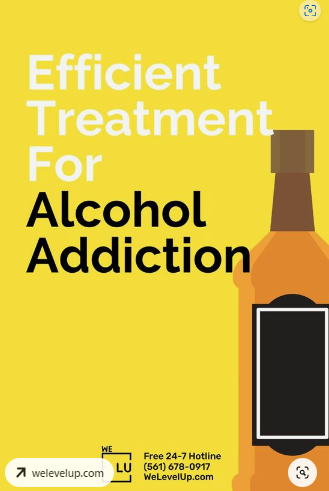
Lithium Alcohol Cravings
What causes alcohol cravings? When we crave alcohol, we are in a state of anticipation: we want to drink or use other drugs. And this can be caused by alcohol withdrawal, or it can be a response to certain stimuli, like being surrounded by people drinking or a fond memory where drinking was involved. Cravings result from either a withdrawal or the presence of a trigger. The cues and triggers are typically the cause of our cravings. Either way, cravings are always born in the brain.
When someone is healing from an addiction to alcohol, especially if that addiction is long and intense, he or she would likely experience psychological, physical, and emotional symptoms while the body and brain learn to live without alcohol and stabilize. The psychological experiences that a recovering alcoholic has can be the most troubling.
To minimize the challenges of depression and mania that a person might have while withdrawing from alcohol, doctors frequently prescribe medication. One of these is lithium, which has worked specifically to address depression and mania. However, experts disagree on what specifically lithium can treat in a recovering addict. There is a debate about whether lithium is only good for those recovering addicts who also suffer from bipolar disorder.
Can Lithium and Alcohol Kill You?
Everyone’s risks with alcohol are unique and depend on multiple factors, such as genetics and medical history. However, some people may be at higher risk when combining alcohol with lithium.
The following people have greater risks when drinking alcohol while taking lithium:
- People with AUD: As mentioned above, people with untreated alcohol use disorder (AUD) may experience more manic or depressive episodes and are at a higher risk for suicide.
- People with liver problems: Drinking alcohol can worsen liver disease. When you have liver problems or liver disease, it can cause your body to digest alcohol slower than someone without these issues. If alcohol hangs around in the body longer, it can make the sedative side effects of lithium more pronounced.
- People over 65 years old: Older adults are more sensitive to alcohol’s effects due to how the body changes as we age. This means people over 65 are more likely to feel sleepy or dizzy after drinking, making it riskier for them to combine alcohol and lithium.
- People assigned female at birth: Because they have less body water, people assigned female at birth can have higher blood alcohol levels when drinking than people assigned male at birth. This means more alcohol is present in the bloodstream to interact with lithium, potentially causing more side effects or making the medication less effective. Due to the lack of research, we are unsure how this risk specifically applies to transgender, intersex, or non-binary people.
Alcohol and Lithium Toxicity
What is Lithium Toxicity? You can develop lithium toxicity suddenly if you take too many tablets at once or combine lithium with certain other medicines.
If you are on a steady dose of lithium, you may get chronic lithium toxicity when your kidneys stop working properly.
Lithium toxicity can cause:
- Vomiting
- Nausea
- Diarrhea
- Confusion
- Blurred vision
- Trouble walking
- Drowsiness
- Muscle weakness
- Psychosis
- Flu-like symptoms
- Seizures
- Coma
Lithium toxicity can cause death. Lithium is a medicine with a narrow range of safety, and toxicity can occur if you take only slightly more than the recommended dose.
Lithium for Bipolar and Alcohol
Bipolar patients have a high prevalence of comorbid alcohol use and abuse disorders, while chronic alcohol drinking may increase the presence and severity of specific symptoms of bipolar disorder. As such, many individuals may be prescribed lithium to alleviate the manic symptoms of bipolar disorder but also drink alcohol concurrently.
In addition, both alcoholics and individuals with bipolar disorder often exhibit disruptions to their sleep-wake cycles and other circadian rhythms. Interestingly, ethanol and lithium alter the period and the phase of free-running rhythms in mammals. While lithium is known to lengthen the period, ethanol seems to shorten and attenuate the responses to acute light pulses.
However, lithium treatment does not seem to reduce alcohol intake in individuals who suffer from bipolar disorder. Lithium is no longer used to treat alcoholics, as safer pharmaceuticals, such as naltrexone, have been developed. Naltrexone treatment is useful for individuals with bipolar disorder and comorbid alcoholism, as it decreases alcohol drinking days, alcohol cravings, manic episodes, and depressive symptoms.
Co-Occurring Disorders (Bipolar and Alcoholism)
Bipolar disorder has approximately 33-50% comorbidity with substance abuse disorders, including alcoholism. Bipolar disorder and alcohol addiction are frequently seen together. According to some research, most people with bipolar disorder will experience an alcohol use disorder at some point in their lives. Nearly half of those who have bipolar disorder also struggle with an alcohol abuse issue of some kind.
Many people think that bipolar disorder refers to someone who, like a switch being flipped on, can experience happiness one second and sadness or hostility the next. This is not at all how bipolar disorder is. Intense feelings of joy or emptiness may mix with hopelessness or a sense of being lost. Although it may appear to be a never-ending struggle, there is much more to each person’s suffering.
Bipolar disorder patients may feel out of control or disconnected from their lives. When an episode begins, being unsure of what to do or how to feel makes turning to alcohol a highly tempting approach for easing these numbing symptoms. Alcohol eases tension, particularly in social situations. It may temporarily lessen the negative bipolar disorder symptoms, but it also increases the likelihood that the disease will eventually worsen.
Experience Transformative Recovery at the We Level Up Treatment Center.
See our authentic success stories. Get inspired. Get the help you deserve.



Start a New Life
Begin with a free call to an addiction & behavioral health treatment advisor. Learn more about our dual-diagnosis programs. The We Level Up treatment center network delivers various recovery programs at each treatment facility. Call to learn more.
- Personalized Care
- Caring Accountable Staff
- World-class Amenities
- Licensed & Accredited
- Renowned w/ 5-Star Reviews
We’ll Call You
Alcoholism Treatment
First and foremost, if you think a loved one is abusing Lithium and alcohol, you should research the substances and their associated addiction to understand better what your loved one needs. Next, you must plan an intervention to provide your loved ones with options to battle the effects of Lithium and alcohol addiction in a safe and supportive environment. During this intervention, offer compassion and support instead of judgment. Lastly, show your support throughout the entire treatment process.
In addition, prolonged drug use can have severe physical and psychological effects on you, so it is essential to seek treatment as soon as possible. Inpatient drug rehab offers intensive care that can help you promptly get through the early stages of withdrawal.
Alcohol Detox
Lithium and alcohol detox is the process of weaning someone off of a dependency on a substance. It allows members of rehab centers like We Level Up NJ to recover safely and comfortably. While an uncomfortable withdrawal from alcohol is unavoidable, it doesn’t have to be unbearable.
Medical detox is often considered the first stage of treatment. It will help you navigate the complicated Lithium and alcohol withdrawal but doesn’t address patterns of thought and behavior contributing to drug use. Various treatment approaches and settings can help provide the ongoing support necessary to maintain long-term sobriety after you complete the Lithium and alcohol detox.
Cravings are very common during Lithium and alcohol detox and can be challenging to overcome. This often leads to relapse. Constant medical care provided during inpatient treatment helps prevent relapse. Clinicians can give medication and medical expertise to lessen cravings and lithium and alcohol withdrawal symptoms.
Inpatient Alcohol Rehab
There isn’t one treatment approach or style that will suit everyone. Treatment should speak to the needs of the individual. Inpatient rehab and addiction treatment aren’t just about drug use. the goal is to help the patient stop using alcohol and other substances, but alcohol rehab should also focus on the whole person’s needs.
Addiction is a complex but treatable disease that affects brain function and behavior. When someone or their family is considering different treatment facilities, they should account for the complexity of addiction and the needs of the individual. The objective of attending an inpatient rehab center for addiction treatment is to stop using the drug and re-learn how to live a productive life without it.
Following a full medical detox, most people benefit from inpatient rehab. Inpatient drug rehab can last anywhere from 28 days to several months. Patients stay overnight in the rehab facility and participate in intensive treatment programs and therapy. Once someone completes rehab, their addiction treatment team will create an aftercare plan, which may include continuing therapy and participation in a 12-step program like Narcotics Anonymous.
Psychotherapy
Many rehab programs will also have early morning classes or programs. Group sessions occur during inpatient rehab, as do individual therapy sessions. Family therapy may be part of inpatient rehab when it’s feasible. Alternative forms of therapy may be introduced during inpatient rehab, like a holistic therapy program, yoga for addiction recovery, or an addiction treatment massage therapy.
Several different modalities of psychotherapy have been used in the treatment of mental health disorders along with addiction, including:
- Cognitive Behavioral Therapy (CBT) – is an effective treatment that involves changing both the patterns of negative thoughts and the behavioral routines which are affecting the daily life of the depressed person for various forms of depression.
- Dialectical Behavioral Therapy – is a comprehensive mental health and substance abuse treatment program whose ultimate goal is to aid patients in their efforts to build a life worth living. The main goal of DBT is to help a person develop what is referred to as a “clear mind.”
- Solution-focused therapy is an approach interested in solutions that can be quickly implemented with a simple first step leading to further positive consequences.
Dual Diagnosis Treatment
Drug abuse and mental health disorders often co-occur. In many cases, traumatic experiences can result in a mental health disorders and substance abuse. Dual-diagnosis rehabilitation treats both of these issues together. The best approach for the treatment of dual diagnosis is an integrated system. This strategy treats both the substance abuse problem and the mental disorder simultaneously. Regardless of which diagnosis (mental health or substance abuse problem) came first, long-term recovery will depend mainly on the treatment for both diseases done by the same team or provider.
Medication Assisted Treatments (MAT)
Medication-Assisted Treatments (MAT) for substance use and mental health disorders are commonly used in conjunction with one another. This includes the use of medications and other medical procedures. During your rehab, the staff from your treatment facility will help you identify what caused your addiction and teach you skills that will help you change your behavior patterns and challenge the negative thoughts that led to your addiction. Sometimes, the pressures and problems in your life lead you to rely on substances to help you forget about them momentarily.
Please, do not try to detox on your own. The detox process can be painful and difficult without medical assistance. However, getting through the detox process is crucial for continued treatment. We Level Up provide proper care with round-the-clock medical staff to assist your recovery through our opioid addiction treatment program medically. So, reclaim your life, and call us to speak with one of our treatment specialists. Our counselors know what you are going through and will answer any of your questions.
Alcohol Rehab Near Me
Lithium and alcohol addiction is a condition that can cause major health problems, such as an overdose. We Level Up NJ rehab treatment & detox center can provide you, or someone you love, the tools to recover from this with professional and safe treatment. Feel free to call us to speak with one of our counselors. We can inform you about this condition and clarify issues like Lithium and alcohol withdrawal symptoms. Our specialists know what you are going through. Please know that each call is private and confidential.
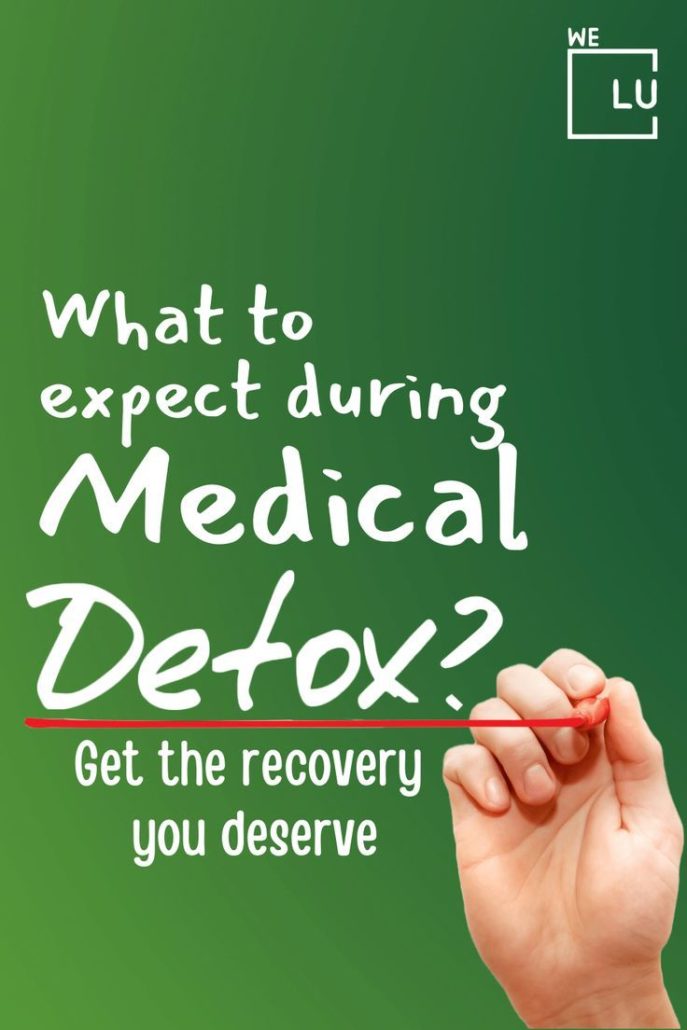
Search Lithium and Alcohol Topics & Resources
Sources:
[1] Lithium: MedlinePlus Drug Information
[2] label (fda.gov)
[3] brmedj00464-0049d.pdf (nih.gov)
[4] Effect of acute alcohol consumption on lithium kinetics – PubMed (nih.gov)
[5] Alcohol and lithium have opposing effects on the period and phase of the behavioral free-running activity rhythm – PubMed (nih.gov)
[6] NIMH » Bipolar Disorder (nih.gov)
[7] Bipolar and Addiction – 4 Types of Bipolar and Effective Treatment (welevelup.com)